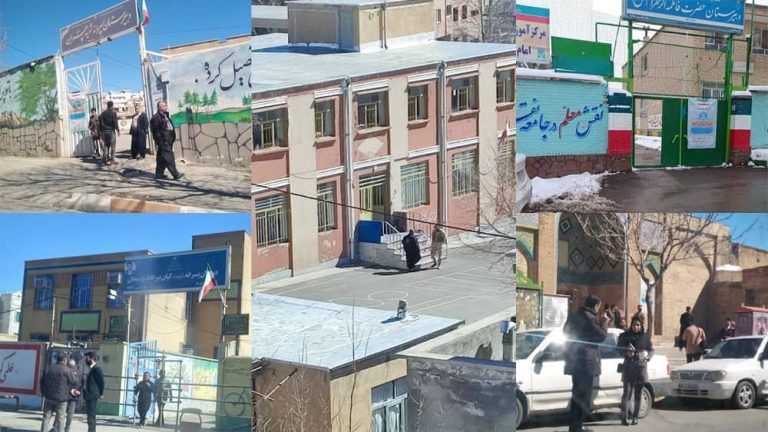

The elections, marked by a record-low turnout, have prompted a wave of introspection within the country, questioning the legitimacy and future direction of its governing institutions.
The boycott, described by some as a “massive blow” to the regime, has led to a rare admission from officials, acknowledging their disregard for the people’s choices. Ahmad Alamolhoda, a prominent figure within the regime and the Supreme Leader’s representative in Mashhad, was notably candid in dismissing the significance of the majority’s will, stating that respect is reserved only for those who align with the regime’s religious and obedient factions. This stance starkly contrasts with Islamic teachings, which, as cited in the Holy Quran, emphasize the importance of consulting and valuing the people’s opinions.
Since the 1979 anti-monarchic revolution, the regime has faced accusations of violating the very sovereignty it sought to establish. Critics argue that the mullahs’ rule has been marked by a misuse of Islam, enforcing a medieval governance system that has been contested since its inception. The principle of the “Absolute Rule of Clergy” has been a cornerstone of this governance, effectively reducing the populace to a “minor” status in need of guardianship, a notion deeply ingrained within the regime’s ideology.
Watch and judge how the representative of the Supreme Leader of the #Iranian regime in Mashhad is resorting to unconventional methods to coerce turnout for the upcoming sham elections. pic.twitter.com/rML6uoyQth
— NCRI-FAC (@iran_policy) February 6, 2024
Statements from regime officials over the years have echoed this sentiment, positioning the Supreme Leader’s authority as absolute, even to the point of equating it with divine command. This has led to a systemic deprivation of Iranians’ fundamental rights and freedoms, with the recent electoral boycott serving as a stark reminder of the deep-seated discontent among the Iranian populace.
In the aftermath of the boycott, several regime officials have sought to downplay the significance of the widespread disapproval, calling for unity and dismissing dissenters as either traitorous or insane. Yet, the attempts to mitigate the situation seem to reflect a deeper fear within the regime of an increasingly restive society. Reports from the Social Headquarters of the People’s Mojahedin of Iran (PMOI/MEK) indicate a mere 8.2% turnout at the polls, a figure that contrasts sharply with the regime’s own estimates of 20 to 40%.
Why does #Khamenei fear his own sham elections? Why sideline allies like Fallahian, Salehi, Taeb and Rouhani? Is it about succession or survival? Explore in an 8-minute video on #IranElections. pic.twitter.com/byvOocmwR8
— NCRI-FAC (@iran_policy) February 13, 2024
This discrepancy, along with the conflicting reactions from various regime officials, underscores the current state of unbalance and factional feuds within the regime, highlighting the unprecedented nature of the electoral boycott and its implications for Iran’s political landscape. The recent events in Iran serve as a poignant reminder of the ongoing struggle between governance and the governed, raising critical questions about the path forward for a nation at a crossroads.

MEK Iran (follow us on Twitter and Facebook), Maryam Rajavi’s on her site, Twitter & Facebook, NCRI (Twitter & Facebook), and People’s Mojahedin Organization of Iran – MEK IRAN – YouTu







